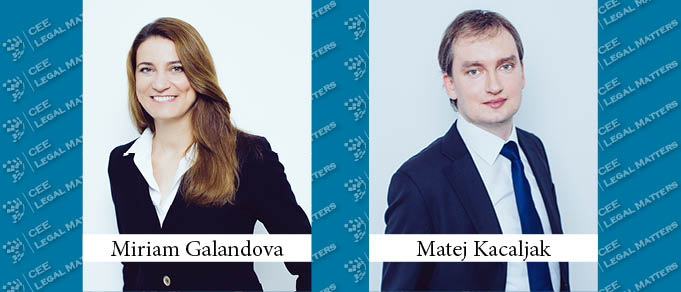Although in use long before, on January 1, 2018, a new type of equity funds – “capital funds from contributions” – were expressly recognized and regulated by the Slovak Commercial Code. These funds are considered a supplement to contributions to a company’s registered capital and may be created by all capital company forms in Slovakia, including joint stock and limited liability companies.
They differ from contributions to registered capital in that, in general, contributions to capital funds from contributions do not increase the voting share of the respective shareholder making the contribution. Therefore, they are commonly used as a form of equity contribution by a new investor acquiring shares in a company with relatively low registered capital (which is typical for start-up companies in Slovakia). This form of equity contribution found its place also in cases of imminent need for company recapitalization, e.g., to avoid the initiation of insolvency proceedings. Shareholder loans are often converted into equity through the contribution to capital funds from contributions.
The process of their creation is less burdensome from the perspective of administrative and reporting requirements. In particular, unlike contribution to registered capital, capital funds from contributions do not have to be registered with the Slovak Commercial Register.
That said there are certain notification requirements which still must be fulfilled, including the inclusion of the possibility that such funds will be created in the foundation documents of the company, approval of the contribution by a general meeting of the company, and prior notification of distribution of the capital fund. Also, the new rules have introduced a requirement of expert valuation of in-kind contributions and various distribution restrictions.
In addition, the new rules on capital funds from contributions have certain peculiar income tax implications. Though in broader terms Slovak income tax rules consider contributions to capital funds to be similar to contributions to registered capital, there are differences regarding distributions from these funds.
In particular, the distributions are not treated as dividend income, and instead fall within the general tax base of the shareholder receiving the distribution (taxable either at the corporate rate of 21% or the individual progressive rate of 19/25%). That essentially makes such distributions similar to those resulting from decreases of the company’s registered capital.
However, though the law treats individual taxpayers and legal entities slightly differently, in general the wording indicates that when calculating the tax base only the shareholder making the contribution can deduct the amount of contribution made in the past from the distributed amount.
This presents practical difficulties for share transfers, where the acquirer of the shares is not entitled to a deduction. This non-entitlement would apply even where the acquirer has actually reflected the amount of the contribution of the seller in the purchase price of the shares (arguably the capital fund from contributions affects the overall value of the company) and where the distribution from a decrease of registered capital would not be subject to tax up to the amount of the purchase price paid for the acquired share(s). This unequal treatment needs to be taken into account when structuring transactions.
On the other hand, since the distribution is not classified as a dividend under Slovak law (or as any distribution of profit), it does not fall under the dividend regime in double tax treaties to which Slovakia is a participant. Rather, it is treated either as enterprise income or as other income, where the residency principle usually applies, thus making the distribution not subject to taxation in Slovakia.
That said, discussions have been initiated about eliminating these peculiarities and it is possible that in the near future the tax regime of contributions to capital funds from contributions and distributions therefrom will be enhanced. Then “capital funds from contributions” may become a useful tool for companies in difficulties caused by the Covid-19 crisis.
By Miriam Galandova, Partner, and Matej Kacaljak, Senior Associate, PRK Partners in the Slovak Republic
This Article was originally published in Issue 7.9 of the CEE Legal Matters Magazine. If you would like to receive a hard copy of the magazine, you can subscribe here.
